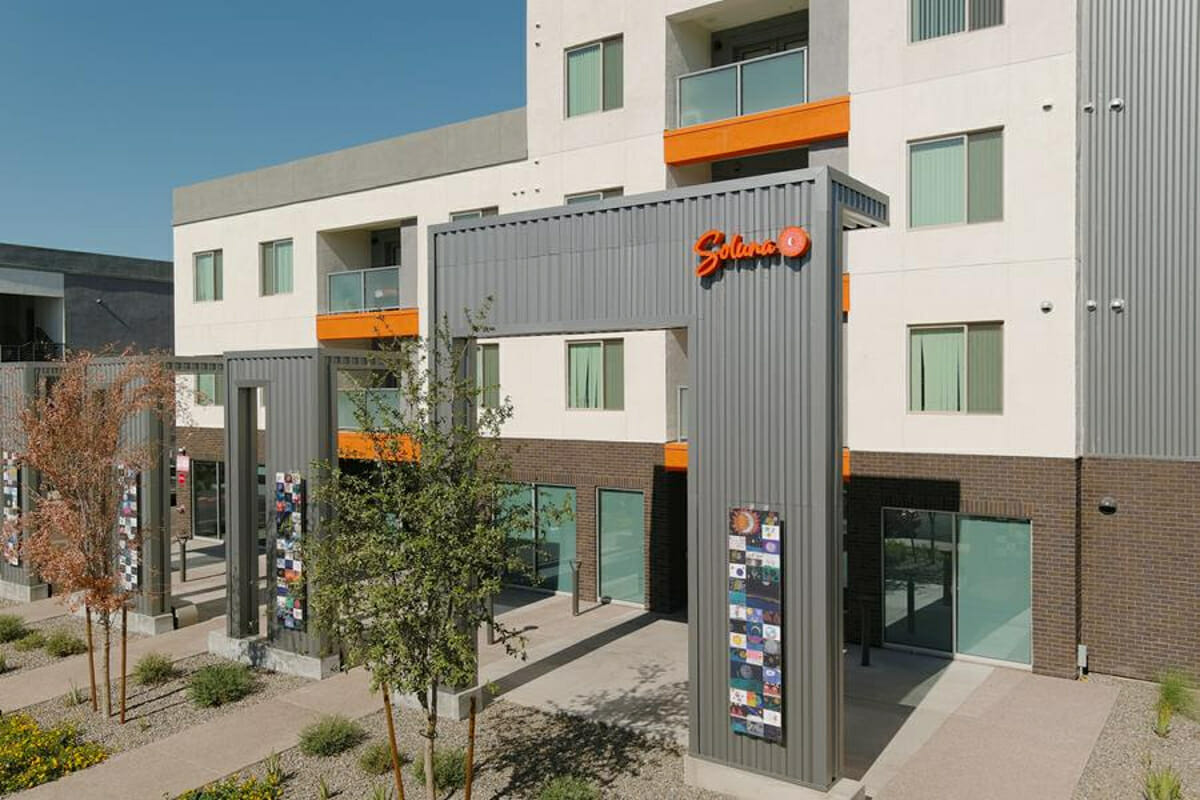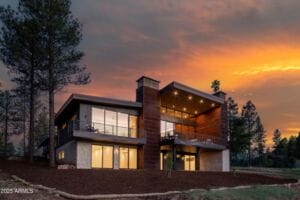The Edison-Eastlake Community, located one mile east from Downtown Phoenix at East Jefferson Street has been granted multiple revitalization initiatives such as community programs and new housing units.
The City Of Phoenix was awarded $30 million for the Choice Neighborhoods Implementation Grant for its Edison-Eastlake One Vision Plan. The grant was given in 2018 from the United States Department of Housing and Urban Development.
READ ALSO: How ULI task force is tackling Arizona’s need for workforce housing
READ ALSO: Is a housing market crash on the way in 2022?
The Choice Neighborhoods grants nationally have demonstrated that with the targeted support sources the incomes of the families increase. Included in the grant given by the United States Department of Housing and Urban Development and the funds given by key partners is the redevelopment of Frank Luke, A.L. Khron, and Sidney P. Osborn Homes which are three severely distressed public housing developments, representing the largest concentration of public housing in the state of Arizona. Jason Pu, the HUD regional administrator for region 9 says that “HUD is working tirelessly to ensure that every American has a stable home.”
“Housing is a human right. And it’s the foundation upon which health, mental health, education and economic opportunities are based. HUDs house America initiatives ensuring that we are rehousing people experiencing homelessness with appropriate and supportive wraparound services and creating additional affordable housing, to address housing insecurity and to prevent further homelessness,” said Pu.
Choice Neighborhoods award offers the opportunity to radically reshape the Edison-Eastlake neighborhoods landscape which until recently has been functionally obsolete and poorly designed. In total 1,161 units will be constructed with replacement for each of the existing 577 units, which will capitalize on transit-oriented development opportunities, will deconcentrate poverty, and will ensure long-term housing affordability. In addition to this housing another 150 public housing units will be developed off-site in communities that offer similar educational, employment, and transit opportunities.
In the city’s five year housing plan the City of Phoenix Department of Housing expressed their excitement for the the opportunity to revitalize Edison-Eastlake,
“Edison-Eastlake is a diverse and thriving in-town neighborhood rich with history that offers exceptional access to downtown, high quality homes, healthy living and excellent connections to jobs, schools and services,” said the Phoenix Housing Authority.
In April the first mixed-income housing unit, Soluna, funded by the grant was leased out to residents. The apartment complex includes 177 one-five bedroom energy efficient units.
The Resident Leadership Council was included in the One Vision Plan when the city applied for the grant according to Eva Olivas, executive director of Phoenix Revitalization Corporation. The council is a way for the residents to express their needs to the city, and bring the community together in event planning. The residents were included in everything from design meetings to to talk about colors, and they had community meetings to talk about what was not in the project that the residents wanted to see, said Olivas. The city contracted the Phoenix Revitalization Corporation to provide the service.
“It’s always been focused on how do we develop leadership, and the skills of people, how do we help them understand what the priorities are, how do they prioritize for themselves, and then how can they get connected to resources…as a result residents were very involved,” said Olivas.
In the past low-income housing were built as islands of concentrated poverty, housing did not have air conditioning, inadequate heating, were not designed with any amenities for families and became targets for crime. Mayor Kate Gallego of the city of Phoenix, at the Soluna Grand Opening on October 26, spoke on the fact of low income housing not being “livable.”
“This really is an exciting moment for the City of Phoenix…it began with a series of forums and community meetings we had with our public housing residents shortly after I was elected to City Council…The units they were living in were pretty small, very small windows, people using clotheslines and swamp coolers and they challenged us to do better and said is this somewhere where you would want to live?”said Gallego
Gorman and Company is the developer that was procured by the city of Phoenix to implement the area’s transformation plan. They were successful in assembling the financing which included low income housing tax credits from the Arizona Department of Housing Finance, private mortgage, other sources of gap funding with key partners such as, Arizona Department of Housing (ADOH), Phoenix Community Development & Investment Corporation (PCDIC) and HUD. These finances came out to be over $180 million. Brian Swanton, the president and CEO of Gorman and Company, said that the developers role is to help with the planning and design process in addition to lining up financing.
“A lot of different funding sources go into these projects, both private debt and equity as well as government resources. And our job is to sort of line up all of those funds in partnership with the city,” said Swanton.
City officials said the neighborhood strategy of this project emphasizes the goal of making this a walkable, livable, and sustainable community. There will be mobility improvements including, complete streets, and a bike share program which will create a neighborhood that is easier to get around with comfortable connections to transit and services. Additional neighborhood improvements including housing rehabilitation and business facade programs as well as targeted public safety initiatives. Open space will be expanded, creating new and accessible parks that offer amenities, active programming, and shade. Throughout the neighborhood and included in the investment will be public art and place-keeping projects.
The people strategy of this project provides quality services to residents to improve overall health, economic, and education outcomes. Residents will be connected to services based on their individual needs and goals, such as a new Family Education Center will feature a library, an Early Headstart classroom, and space for a federally qualified health center to provide physical and mental health services. A network of school-based and out-of-school educational programming will be put in place to help the youth succeed. In partnership with the Phoenix Revitalization Corporation, Courtney Anderson, project manager for the City of Phoenix, has ensured that residents will have an active voice and role in all aspects of the transformation plan.
“They really are able to be a part of every bit of every bit of the changes that are happening in this community. It’s not just about changing the housing. It’s about bringing opportunity, having safer streets, neighborhood enhancements, park enhancements. That would also bring in businesses and more people wanting to invest in the community.”




